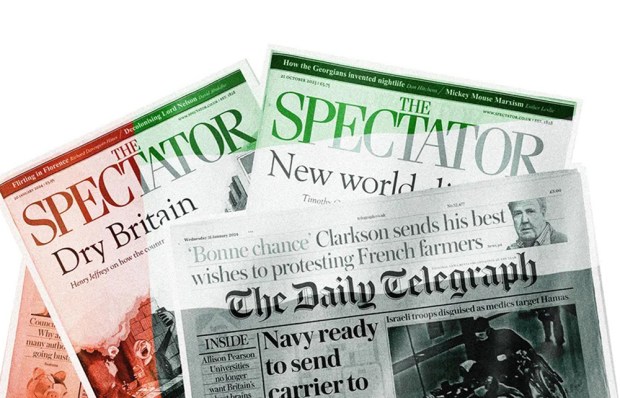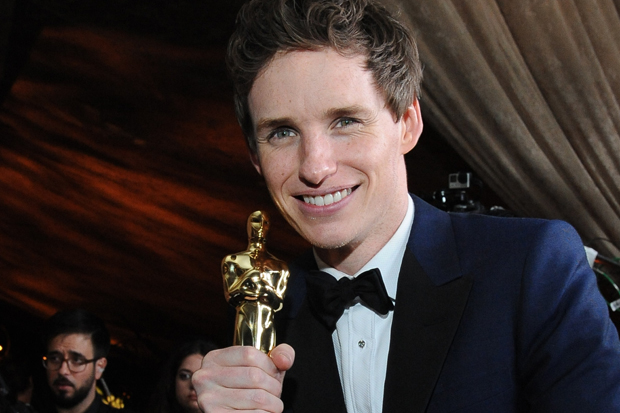Eight years ago, in the course of doing some research into literacy teaching in London, I visited many primary schools. One thing that struck me — and I didn’t of course mention it in the pamphlet I wrote on the subject — was how many primary school teachers were severely obese. One isn’t supposed even to notice it. But it’s been worrying me ever since. Obesity inevitably involves lower energy levels, less mobility, reduced staying power — all weaknesses which, however talented a teacher may be, are likely to impair his or her ability to cope with young children. What’s more, teachers are role models. I feel great sympathy for obese people, but I would be troubled if my young child were being taught by a seriously obese teacher. Now the papers are full of statistics showing that record numbers of 11-year-olds are severely obese. I have no idea whether there is any correlation in obesity between teachers and their primary school pupils, and in any case it would be impossible to ascertain. But the whole subject seems to me to be cause for concern.
I wonder whether any #MeToo supporters watched the first episode of Still Open All Hours (series five) now showing on BBC1 on Sundays. I came upon it by chance and was astonished that anything so charmingly old-fashioned (starring David Jason of Inspector Frost fame, 78) was still being made. The plot revolves around three men — one youngish, one elderly, the third a middle-aged immigrant — who have one thing in common: they are all terrified of their domineering wives. ‘She who must be obeyed.’ Downtrodden husbands and despotic wives have, of course, been the staple of domestic comedies (and occasionally tragedies) for centuries, and everyone knows one or two such couples. Indeed, my own poor husband is often somewhat downtrodden. But do #MeToo advocates ever see men in this light?
Reading extracts from More Dashing, the recently published collection of letters by the renowned travel writer, war hero and, yes, dashing ladies’ man Paddy Leigh Fermor, reminded me of one of the most embarrassing incidents of my life. I had been invited to a dinner party at which Leigh Fermor — whom I’d never met before and would never meet again — was one of the guests. I can’t recall much about the dinner itself except that Paddy dominated the conversation with his exuberance and his extraordinary ability to quote long passages of poetry in various languages. Afterwards, as sometimes happened in those days — it must have been the 1970s — the hosts rolled back the carpet and put on some dance music. I was standing near Paddy who, flushed with wine, grabbed hold of me, pressed me tightly to his bosom and started whirling me round the room taking long clumsy steps. He was slightly shorter than me (in high heels). While dancing he started declaiming a long monologue from a play. I wish I could remember what it was, it may have been in French, Racine perhaps. His face was shiny with perspiration. Everyone was watching. I tried to keep up with his erratic movements and I knew that my bottom was sticking out in ungainly fashion. I love dancing but this was agony. The music and the recitation went on and on. Leigh Fermor, according to his biographer Artemis Cooper, had the rare gift of making everyone feel livelier. I am the exception that proves the rule. He made me feel a complete ass.
One of the minor characters in William Thackeray’s novel Vanity Fair is a loyal black footman, Sambo — in ITV’s recent adaptation of the book, he’s called Sam. Watching one of the early episodes, I was rather taken aback to hear Sam’s employer being addressed, in Sam’s hearing, in these words: ‘My dear Mrs Sedley, I do wonder at your judgment in letting him loose on your porcelain.’ The speaker was snobby, rich old Miss Crawley. I don’t remember the novel very well, but the words struck a false note. Yes, racism was widespread in 19th-century England and Thackeray was not immune to it. But this gratuitous insult did not ring true. So I downloaded the novel for free onto my Kindle and did a search. None of the references to Sambo included anything resembling the offending sentence — so it must have been inserted by the scriptwriter. Presumably the intention was to make quite sure that no one in the audience was in any doubt about the bigotry of white people in the Victorian era. But the effect on black viewers must have been hurtful and unsettling.
Got something to add? Join the discussion and comment below.
Get 10 issues for just $10
Subscribe to The Spectator Australia today for the next 10 magazine issues, plus full online access, for just $10.
You might disagree with half of it, but you’ll enjoy reading all of it. Try your first month for free, then just $2 a week for the remainder of your first year.














Comments
Don't miss out
Join the conversation with other Spectator Australia readers. Subscribe to leave a comment.
SUBSCRIBEAlready a subscriber? Log in